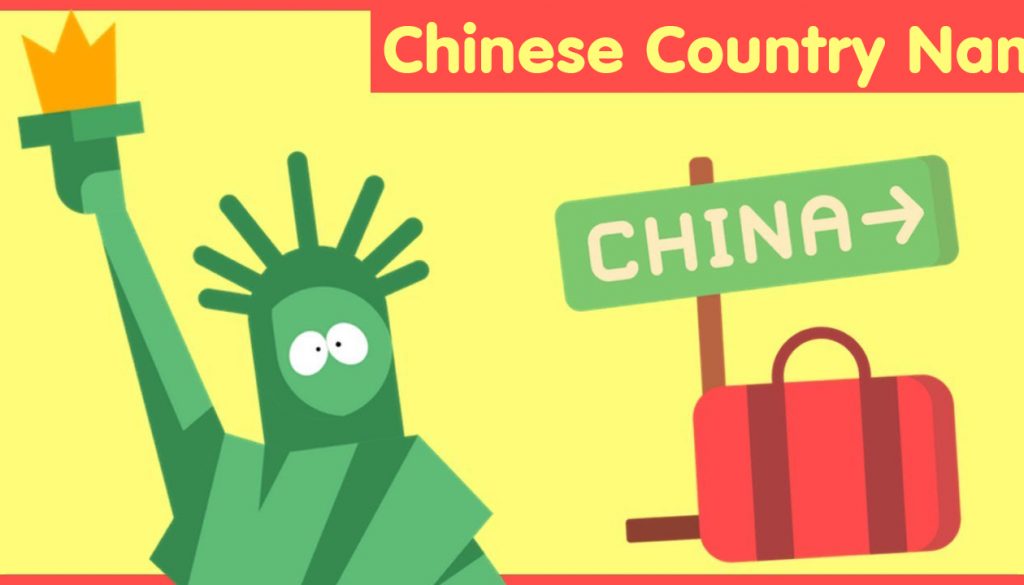Chinese Country Names and Their Meaning
Names of many countries look very similar in many languages. If the language allows it, usually we try to ‘copy’ the country name as far as possible: Italy (English), Italien (German), Italia (Italian, Spanish), Италия (Russian) — it’s Cyrillic, but trust me, it sounds very much the same.
In other case, we translate literally: the United States are die Vereinigten Staaten in German, los Estados Unidos in Spanish and Соединенные Штаты in Russian.
Such translation and/or copying happens very easily between Indo-European languages: they use the same or similar scripts, have shared vocabulary and somewhat similar grammatical structures.
But what happens if we need to translate the name of a country into a language that not only has a different logic and structure but also a very different writing system — for instance, Chinese?
In this article, we will take a look at country names in Chinese, their pronunciation and literal translations.
Chinese characters and naming countries
Unlike the Latin or the Cyrillic script used in the examples above, Chinese characters — also called ‘hanzi’ – are not letters and they do not make up an alphabet.
Each Chinese character represents a syllable of spoken Chinese, and it may be a word on its own or a part of a polysyllabic word.
So how have the Chinese used such a system to convey the names of the countries of the world?
Usually, names of foreign countries are interpreted phonetically in Chinese. Hanzi are selected on the basis of their pronunciation, so that they sound as close to the original as possible. Mandarin Chinese has fewer sounds compared to many European languages, and quite often the transliterations are a very rough approximation.
Such a naming system often results in combinations that, when translated literally into English, are quite interesting or even a little bit funny.
Here are a few examples of the names of different countries in Chinese.
The pretty ones!
The name for the United Kingdom is 英国, ying guo. It can be either ‘brave land’ or ‘great country’. However, nowadays, the character ‘英’ has come to be associated with the UK.
The United States is 美国, meiguo, literally translated as ‘beautiful country’. The name has been chosen because ‘mei’ sounds similar to ‘mer’ in ‘America’.
Some other countries also have nice names, when translated literally from Chinese. France is 法国, faguo, or ‘country of law’. Chile is 智利, zhi li, ‘favorable wisdom’. Thailand is 泰国, tài guó, ‘country of peace’.
The not-so-pretty ones!
Names of other countries do not quite make sense. Spain is 西班牙, xi ban ya. The sound is supposed to mimic ‘Hispania’, but the literal translation of the characters is ‘western class teeth’! Mexico is 墨西哥, mo xi ge, ‘ink west older brother’, and Yemen is 也门, ye men, ‘also door’.
The phonetic ones
Not all the names are phonetic, however. China itself is 中国, zhong guo, the Middle Kingdom — the name comes from the belief that the Chinese kingdom was in the centre of the world. Japan is 日本, ri ben, ‘land of the rising sun’ or ‘sun source’. Russia is 俄国, e guo, and the first character in this combination simply means ‘Russian’, without any phonetic representation.
The literal ones
Some names are actual translations of the original name, not phonetic either. South Africa is 南非, nan fei: It can be translated literally as ‘South Africa’. ‘Fei’ is taken from the Chinese name for Africa ‘feizhou’. Iceland is 冰岛, bing dao, ‘ice island’.
So, judging purely from the literal translations of country names from Chinese, which country would you rather be from: brave land, beautiful country, country of law, country of peace? Or, maybe, from a country that’s also door or western class teeth?
What’s in a name? ‘Land of the Franks’ is obvious, right? But ‘Place of Many Rabbits’? The names of countries often have rich and interesting histories… find out more!




